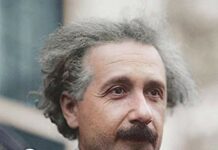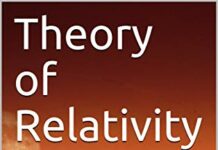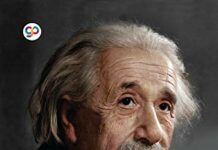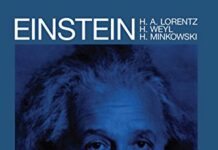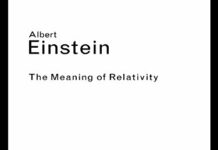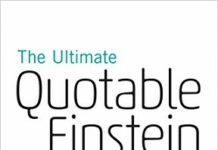
Ebook Info
- Published: 2011
- Number of pages: 182 pages
- Format: PDF
- File Size: 1.24 MB
- Authors: Albert Einstein
Description
The great thinker reflects on such topics as nuclear weapons, world poverty, and international affairs in this Wall Street Journal bestseller. Nuclear proliferation, Zionism, and the global economy are just a few of the insightful and surprisingly prescient topics scientist Albert Einstein discusses in this volume of collected essays from between 1931 and 1950. Written with a clear voice and a thoughtful perspective on the effects of science, economics, and politics in daily life, Einstein’s essays provide an intriguing view inside the mind of a genius addressing the philosophical challenges presented during the turbulence of the Great Depression, the Second World War, and the dawn of the Cold War.This authorized ebook features rare photos and never-before-seen documents from the Albert Einstein Archives at the Hebrew University of Jerusalem.
User’s Reviews
Reviews from Amazon users which were colected at the time this book was published on the website:
⭐As a Nobel Prize-winning physicist, Albert Einstein became famous for formulating the theory of relativity, the equation of mass-energy equivalence, and other important discoveries that changed the way we view the universe. During his lifetime, however, his renown as a scientist allowed him to extend his sphere of influence beyond the realm of physics. As a public intellectual, he also spoke out on politics, economics, and social issues. Essays in Humanism is a collection of Einstein’s nonscientific writings in these areas. First published in 1950 by the Philosophical Library, this collection has been recently rereleased in ebook form by Open Road Media. The 43 essays included, written from 1933 to 1949, were originally presented as public speeches, book forewords, or newspaper and magazine articles.Because of the time frame in which these pieces were penned, World War II hangs like an evil spectre over the entire proceedings. Whether commenting on the rise of the Nazis before the war or the Cold War that immediately followed it, Einstein ardently advocates for world peace. Having contributed to the making of the atomic bomb, and having seen its effects in Japan, Einstein feels compelled to see that nuclear weapons are never used again, though Cold War antagonism between the United States and the Soviet Union make Armageddon an ever-present threat. To prevent World War III, Einstein proposes that nations relinquish their military power to a supranational governing body, stronger than the United Nations, which would insure peace by settling international disputes through judicial rather than violent means. His proposal for this plan is outlined in great detail over the course of many of the essays included here. A Soviet counterargument is also reprinted, along with Einstein’s rebuttal. Surprisingly, even in the early days of the Cold War, Einstein publicly recommends socialism as an economic solution to many of the world’s problems, a stance for which he would likely be vilified today.The essays in this book are not arranged chronologically, but rather thematically. This one issue of international security through supranational governance takes up roughly two-thirds of the book. Then follows a series of several brief tributes to great scientists of the past, such as Isaac Newton and Johannes Kepler, and brief eulogies of departed scientific colleagues, including Marie Curie and Max Planck. The remaining quarter of the book deals with issues pertaining to the Jews, their persecution in Europe, and their attempts to establish a Jewish homeland in Palestine. Einstein praises settlement efforts in Palestine but argues against a totally self-governing Jewish state, as he fears it will only give rise to the sort of rampant intolerant nationalism that spawned the two World Wars in the first place.Overall, Einstein’s writing is excellent. He states his opinions very articulately while expressing an undying compassion for humanity and a conviction for social justice. Most of the book’s faults are editorial. The goal here seems to have been to collect anything that Einstein wrote, regardless of worth. Some of the “essays” are only two paragraphs long, and there is quite a bit of repetition among the selections. Nevertheless, this book gives the 21st-century reader a great deal of insight into the world political climate of the 1930s and ‘40s. Much of what Einstein describes—xenophobia, fear-mongering, extreme income disparity—bears a disturbing resemblance to the world in which we live today. His insightful perspective provides great food for thought and a touch of hope in dark times.
⭐Einstein: Essays in Humanism (1933-1949)Albert Einstein was undoubtedly the most famous and revolutionary scientist of the 20th Century, known especially for his special and general theories of relativity, his explanation of the photoelectric effect, his realization that matter could be converted into immense amounts of energy, and his studies in cosmology. But he also had wide-ranging beliefs about politics and social affairs. This book, now available as a Kindle e-book, is a collection of 43 essays and talks that were written for specific occasions. They cover a variety of topics that interested him and in several cases provide useful lessons for our own time.The first part of the collection, through Essay 20, is concerned with pre- and post-World War II concerns. Einstein, himself a lifelong pacifist, argued for a world government that shared a common pool of armaments and was capable of keeping the peace among fractious national governments. He didn’t think that the United Nations, as constituted with a Security Council and permanent-member veto power was going to work in the long run. He recommended a world government where delegates were directly elected by the people on a proportional basis. He recognized the great danger of atomic and nuclear weapons and advocated their strict control by the world government.In politics, Einstein was a socialist and strongly advocated for such things as a planned economy, free education at all levels, and regulation of capitalist ventures. Today, he would be branded a Marxist, but he disapproved of the Soviet system as being too rigid and corrupt.He advocated an active role for scientists in society and that science should help to shape government policies. He distrusted the military and spoke of the danger of a military takeover of science in order to use it for war-making purposes. In that, he anticipated Eisenhower’s farewell address about the dangers of a military-industrial complex.The next set of essays are brief descriptions of the scientific achievements of several famous scientists: Newton, Kepler, Marie Curie, Max Planck, and less well-known others. There is also a eulogy to Mahatma Gandi.The final part of the book is devoted to Jewish issues and Zionism. Although Einstein was not religious in a traditional sense (his beliefs were strongly influenced by Spinoza), he nevertheless supported Zionism, with some misgivings, and was greatly concerned with the future of European Judaism after World War II and the Holocaust. Interestingly, he originally thought that it would be a mistake for Jewish refugees to migrate to Palestine and hoped that the U.S.would see fit to accept them. Then, he was initially opposed to carving out a separate Jewish state in Palestine, but advocated rather naively that Jew and Arab live side by side in peace in a unified Palestine. Later, he modified these views in light of actual developments. He was offered the mostly ceremonial position of President of Israel, but he declined.Finally, there is an appended biography of Einstein, along with photographs taken at various stages of his life, and a list of acknowledgements.I found this book to be fascinating to read, both for its historical perspective on problems of his day and for insights into problems that continue into our time. Einstein was a good writer and had a good grasp of English, so I assume (perhaps incorrectly) that he wrote all these essays himself. Occasionally, the writing is somewhat convoluted and not as clear as it could be for a modern reader, but mostly it is quite readable. Those who would like to know how a great scientific mind looked at problems of human society will value this collection of essays.Footnote, added 6 Sept 2012: Another collection of writings by Einstein, “Out of My Later Years,” published about the same time as “Essays in Humanism,” contains most but not all of these essays in the four sections titled Public Affairs, Science and Life, Personalities, and My People. “Out of My Later Years” also contains several of Einstein’s scientific papers and essays, with some earlier ones translated from German.
⭐I remember as a teen reading a biography of Einstein. I came away with the idea of a person who was clueless in everyday matters and, though I didn’t know the term, Asperger’s. Reading this collection of writings and speeches I would came to very different conclusion. Einstein cared deeply about people and the world around him. He was very empathetic to the plight of others.As written in another review, this is divided into broad subject matters. I had to smile at the more political writings since they read like the current Occupiers: the biggest problem with the US is that the majority of the economic power is in the hands of a very small percentage of the people.I had 2 problems. Since this is a Kindle book I couldn’t easily jump back to the bibliography as I started each new essay. I was always curious about the date and circumstance. On a rare occasion it was included in the text, but most of the time I had to guess. The other problem is there was a lot of repetition. The writings came from different sources – he often said pretty much the same thing but aimed at different people.OK, those are very minor problems. Over all I found the essays fascinating. Einstein was a very good writer and these essays were easy to read yet put a lot of information in their few words. Highly recommended as a way to see a different side of Einstein.
⭐アインシュタインの一般向けエッセイを読みたいと思ったが、和書では、イメージ通りの本がなく、原書にトライすることにした。海外の古書を購入するのは初めてだったが、非常に満足。急ぐ必要のない趣味の読書のこと、配達まで日数がかかるのは、気にならなかった。スラスラと英文が読めるわけではないが、これを機に、自然と、英文法の復習をすることにもなり、アインシュタインにも、書店にも、前の持ち主にも感謝です。
⭐
Keywords
Free Download Essays in Humanism in PDF format
Essays in Humanism PDF Free Download
Download Essays in Humanism 2011 PDF Free
Essays in Humanism 2011 PDF Free Download
Download Essays in Humanism PDF
Free Download Ebook Essays in Humanism
